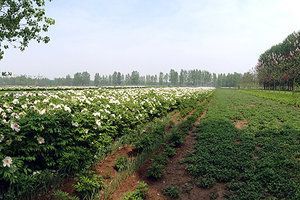The most important relationship I seek to nurture in the treatment room is the one a patient has with their own body. We live in a culture that teaches us to override pain, defer to outside authority, and push through discomfort. Patients often arrive hoping I can “fix” them, but the truth is, we can’t do the work for them. We can offer guidance, insight and support, but healing requires their full participation.
The Truth About Herbs
I appreciate the effort and research put into the article written in the June issue of Acupuncture Today regarding pesticides and Chinese herbs.
Unfortunately, there are numerous articles that have been published over the years about pesticides that have misled the public. We must be very careful in how we proceed when reading, understanding, and reacting to articles in any type of media. However, in this particular case, the statements provided in the past article were given through simple research and by belittling concrete evidence.
On my recent trip to Japan and China, I had the opportunity to visit the researching and developing area in Zhuhai where they are working on new innovative methods for processing. I also traveled north to visit organic farms, which are tended by local farmers and their families. In many instances the farms are located in very small regions of towns and villages.
An article appeared in a local Houston newspaper about the disappearance of the villages in China. As the villages disappear, its culture follows and because of their firm connection to herbal medicines, the production of organic herbs decreases. By helping local farmers grow organic herbs and ensuring they get paid fairly, villages can regain prosperity and produce the finest medicinal herbs.
It is not only imperative, but indisputably paramount that professionals in this industry be mindful of all of the issues surrounding these herbs. When dispensing Chinese herbs, whether single herbs or formulas, it is the responsibility of the practitioner to select the best formula with the highest quality ingredients. How can we advertise a natural product, and then dispense them laced with pesticides that can and will cause harm to both our bodies and our environment? It is our responsibility to take a leadership note in the product information given to patients and the public. The professionals have the training, knowledge, and ethical obligation to give true and correct information regarding their herbal products.

Today there are local, state, and national agencies tracking pesticides and the effect they have on our daily lives. The two largest companies that produce and/or manufacture raw herbs into powder, granulated, and capsules are Schwab out of Germany and KPC in Taiwan. These two companies independently test for pesticides, fungus, mold, spores, heavy metals, and plant species. Schwabe found that 33-35% of the shipments have to be returned to China and KPC found 25-28% had to be returned.
In the United States, there are OSHA guidelines that help strengthen protection regulations. The EPA is to advocate for pesticide rules. About 85% of all the herbs that are used in Chinese medicine come from China. Some practitioners may not have extending knowledge in the specific varieties of pesticides used on the plants that go into herbal formulas.
Aside from the increase in organic production, there are numerous studies to provide evidence that pesticides inflict more harm on the patient and environment than the good it does to the herbs by preserving them. After countless studies, agencies have been able to prove the link between pesticides and cancer, Alzheimer's, ADHD, harm to the endocrine system, and more illnesses. Even if regulated and "maintained," there is no research to prove that pesticides are completely safe and harmless.
The Natural Medical Institute, a consulting service to global organizations in multiple industries, has been tracking the growing interest in organic demand. According to Organic Monitor estimates, global organic sales soared from $50.9 billion in 2008, to $54.9 billion in 2009. Of the countries that are producing these numbers, the United States has the most wide-spread and successful market for organics. When looking at the value of personal care products, the NMI found that customers prefer organic ingredients over most other factors. Recent surveys found that 71% of buyers around the world are buying strictly organic products.

Dan Brown, Director of TCM Programs for Steiner Leisure, asserts his position on this topic by saying, "With all the media hype surrounding contaminated products from China (dog food, baby food, herbs etc.), we had to find a way, as a company, to address these issues and overcome concerns. As Chinese medicine is still considered fringe by the mainstream, we felt compelled to do everything possible to make our patients feel safe with their choice to use Chinese medicine. This made organic Chinese herbs the only clear option which is what we offer exclusively on board."
If practitioners and large companies simply supply the costumer the option of organic herbal formulas, the profession will continue to see the steady rise in need and demand for organic products, not only benefitting the customer seeking personal care, but the practice dispensing health care as well.
To the provider dispensing herbs: by choosing to add organic products, your patients have a wider selection in herbs and will be given a choice. The practitioners who give their patient the choice of these medicines are half of the equation. The ultimate judge of the product is the patient, and given all of the research conducted by international health agencies, organic demand is increasing rapidly and shows no sign of slowing. It is simply the knowledge of the danger of pesticides that draws the majority of customers to organic products.
Many patients prefer to stay away from herbal formulas because of negative information derived from the awareness of pesticides and fear of the effects. If nothing is done to reduce and potentially eliminate the use of pesticides, the industry revolving herbal medicine will be lost.



